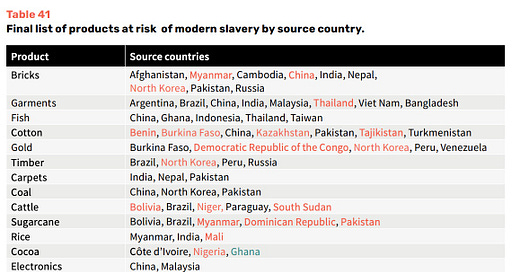Sanctions against NK IT workers; PRC-DPRK trade increasing; Using rubles for Iran-Russia trade.
Prohibited Transactions for the week of 22 May 2023 (#5)
North Korea
The US government sanctioned one individual and four entities associated with North Korean illicit cyber and IT worker operations, which are known to raise funds that finance the DPRK’s weapons of mass destruction (WMD) and ballistic missile programs. The US believes if North Korea opens its borders, Pyongyang will likely dispatch more workers all over the world to raise funds.
OFAC listed six virtual currency addresses associated with the individual, which received USD28 million in funds between 2021 and 2022, but do not appear currently active. //The real question is where did these funds get converted into fiat? If it was via a bank, was there enough unusual movement of funds to be noticed and potentially resulting in a SAR/STR filing? How big was the network of accounts receiving the funds? What is that network tied to? Were the funds withdrawn as cash from the bank, or were transfers made to accounts at other banks to muddy the trail even more?
The US State Department and South Korea’s Ministry of Foreign Affairs held a one day symposium in California involving representatives from “freelance work platforms, payment processors, IT staffing firms, social media companies, and other industry stakeholders, representing more than a dozen countries” to discuss the threat of North Korean IT workers.
Trade between the DPRK and China rose to their highest level in five years, with China exporting USD166 million worth of goods to North Korea, and importing USD34 million of goods from their neighbor. The USD34 million is the highest export figure from North Korea to China since January 2018. //It has also been pointed out that 66 percent of the exports to China were wigs and fake eyelashes, not exactly in the same economic league as North Korean coal, which was previously one of Pyongyang’s main exports.
According to the Global Slavery Index, North Korea has the highest prevalence of modern slavery in the world, with an estimated 2.7 million North Koreans living in conditions of forced labor, debt bondage, forced marriage, slavery and slavery-like practices, or are victims of human trafficking.
The report identified a list of products at risk of modern slavery by source country. They started with the 2022 US Department of Labor list of goods produced by forced labor and child labor, then did a open source literature review and removed any countries from the list where there was no corroborating information, or if the information was more than five years old (in the table below, the countries in red have been removed from the final list). //The DPRK is listed as a source country for coal, and removed as a source country for bricks, gold, timber and textiles. For the latter two products, they are listed as being sourced from Russia and China. Though, an additional layer of sanctions risk exists, as North Korean workers are still present in both nations (in violation of UN Security Council resolutions) engaged in the textiles and logging industries.
Iran
According to an official from the Iran-Russia Joint Chamber of Commerce, trade between the two nations is occurring in Russian rubles.
The governor of the Central Bank of Iran (CBI) encouraged members of the Asian Clearing Union (ACU) to de-dollarize by trading with each other using national currencies.
On the sidelines of the ACU, the governor of the CBI met with his Russian counterpart, and the two discussed increasing brokerage relations between commercial banks of the two countries, and improving banking infrastructure cooperation.
Trade between Iran and China reached USD5 billion in the first four months of 2023. China also imported USD12 billion worth of minerals and mining products from Iran between March 2022 and March 2023.
A Chinese company signed a memorandum of understanding to build a 2,175 mile (3,500 km) road between Iran and Russia.
The head of an Iranian oil company, which runs a large gas condensate refinery in the south, stated that China had cooperated with the company in supplying “energy transformers, rotary evaporators, compressors, and pumping equipment.”
According to Iranian media, the secretary general of the Association of Southeast Asian Nations (ASEAN) announced plans for the association to expand their interactions with Iran.



